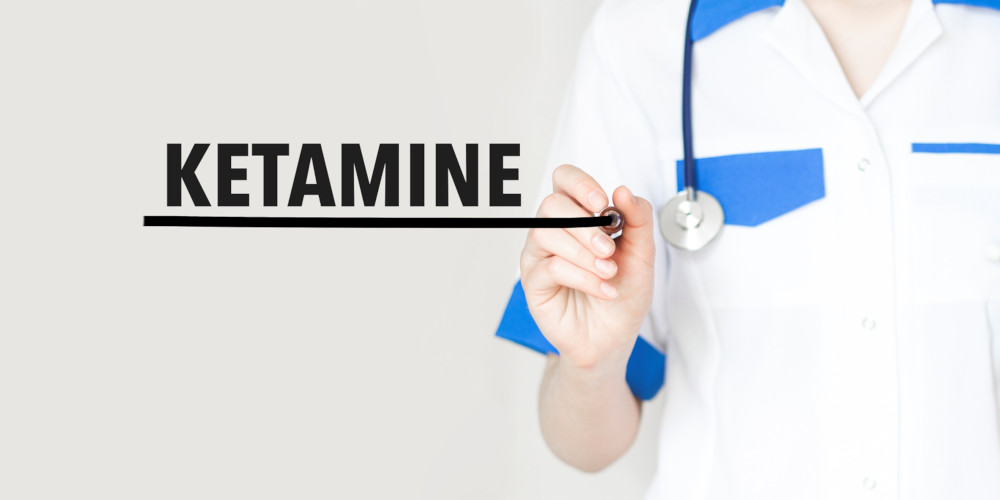Everyone in recovery dreams of “getting out.” The day you finally finish rehab feels like a finish line, a chance to step back into life clean, clear-headed, and ready. But what most people don’t realise is that the end of rehab isn’t the end of addiction recovery. It’s the start of the hardest, most confusing part, learning how to live again.
Inside rehab, life is structured. You wake up at a certain time, you eat at certain times, you attend therapy, you share, you listen. You’re surrounded by people who understand. You’re held up by rules, routines, and support.
Then you leave. The silence hits. The messages from old friends start coming in. Bills, family tension, boredom, and freedom, all flood in at once. You thought you’d be relieved, but instead, you feel lost. Because leaving rehab isn’t like walking home. It’s like walking out of a bubble into a storm.
The Comfort of the Rehab Bubble
For all its challenges, rehab offers something rare: safety. The world inside treatment is predictable, contained, and focused on one thing, recovery. Everyone speaks the same language of healing, and there’s comfort in that.
For months, your only job is to get better. You’re surrounded by structure and community. You’re not dodging triggers or managing bills or dealing with people who don’t understand. The noise of life is replaced by purpose. You feel seen. You belong.
That’s what makes leaving so hard. In rehab, you live in a protective bubble, a world designed to hold you up while you learn to stand again. But bubbles burst. And when they do, reality feels loud, messy, and painfully unfiltered.
The Illusion of “I’m Ready”
Most people don’t realise how fragile early recovery is until they’re back in the real world. They leave treatment confident, and they should. They’ve done the work, stayed sober, faced their demons. But confidence can easily blur into overconfidence.
You tell yourself, I’ve got this. You go back to old environments, the same friends, same streets, same routines, believing that your new mindset will be enough.
But recovery isn’t just about not using. It’s about completely rewiring how you live, think, and respond. The problem is, rehab gives you the tools, but real life is where you learn how to use them.
You can’t practice boundary-setting in group therapy the same way you’ll need to when your old drinking buddy knocks on your door at 9 p.m. You can’t test emotional regulation in the calm of a counsellor’s office the way you’ll have to when your boss screams at you on a bad day.
Leaving rehab is like graduating from a driving simulator straight into peak-hour traffic.
The Drop in Connection
One of the biggest shocks after rehab is the loneliness. Inside treatment, you’re surrounded by people who understand, people who’ve cried next to you in group therapy, laughed with you during chores, held you accountable when you wanted to give up.
Then suddenly, you’re home, and no one speaks that language anymore. Your family doesn’t know what to say. Your friends don’t get it. The people who used to be your support are still trying to figure out what version of you they’re dealing with now.
You miss the routine of connection, the small talk over coffee, the safety of being understood. That void is dangerous. Many relapses start not with craving the drug, but with craving belonging.
It’s why aftercare programs and support groups exist. They replace what rehab gave you, not dependence, but community. Because isolation, not temptation, is what usually takes people down.
The Freedom Hangover
Freedom sounds beautiful after months of rules, until you have it. Suddenly, no one’s telling you what to do, when to wake up, or how to stay accountable. That freedom can feel intoxicating at first, and then overwhelming.
You can go anywhere. See anyone. Do anything. And the brain, still wired for impulse, struggles to handle that much choice.
Many people experience what can only be described as a freedom hangover, a disorienting mix of excitement, fear, and temptation. You start asking yourself, Can I handle this? You test boundaries. You convince yourself you’re “different now.”
Freedom without preparation is relapse in disguise. Real independence in recovery comes slowly, through structure, not through rebellion. The goal isn’t to escape the rules. It’s to build your own.
The Emotional Whiplash
Rehab can sometimes feel like a cocoon, warm, supportive, focused on growth. Leaving it is like being exposed to bright sunlight after months in the dark. Every feeling hits harder.
There’s the guilt of facing people you hurt, the pressure of rebuilding trust, the anxiety of being judged, the sadness of losing friends who still use. Every emotion feels new, raw, and exaggerated.
In rehab, you had counsellors to help you process this. Outside, those emotions land without a net. Some people panic. Some withdraw. Some run. Others relapse not because they want to get high, but because they don’t know how to feel without a drug.
That’s the cruel paradox of recovery, sobriety makes you feel everything you were running from. And life after rehab is where you finally have to face it all.
Family Isn’t Always Ready
Families often think that once rehab ends, the healing is complete. They expect a “new you.” They’ve been holding their breath for months, waiting for normality to return. But recovery doesn’t magically fix relationships.
Your family may still carry resentment. They may still treat you like the person you were. They might not trust you with money, with freedom, or even with conversation. And you might find yourself resenting them for it.
That tension can undo progress if it’s not handled with honesty. Families need recovery, too, education, boundaries, therapy. Without that, both sides end up stuck in old roles, the guilty addict, the angry parent, the anxious partner.
Leaving rehab means learning to live among people who love you, but don’t always know how to love you in recovery. That’s one of the hardest adjustments of all.
The Trigger Trap
Rehab is a controlled environment. Real life isn’t. The smell of a certain drink, the sound of laughter from an old bar, a payday, a breakup, these are the ambushes waiting outside the gates.
You can prepare for them in theory, but nothing compares to the real moment. You’ll have to make choices when no one’s watching. You’ll have to face thoughts like, Maybe I can handle one. Maybe it won’t be the same this time.
Triggers aren’t signs of weakness, they’re reminders of wiring that takes time to reprogram. The trick isn’t to avoid them forever, but to meet them with awareness. To pause, to reach out, to remember that craving isn’t command.
That’s what recovery really is: not the absence of temptation, but the ability to choose differently when it appears.
The Shock of Boredom
Addiction is full of drama, highs, crashes, chaos. Rehab is full of activity, therapy, reflection, connection. Real life, by comparison, feels painfully slow.
Boredom in recovery is dangerous. It can feel like emptiness, like a withdrawal from adrenaline itself. People start craving something, not necessarily their old substance, but that intensity, that spark.
The truth is, normal life feels flat at first because you’re detoxing from chaos. Peace takes practice. You have to learn to enjoy quiet mornings, simple routines, normal emotions. It’s not dullness, it’s stability. But stability feels unfamiliar after years of rollercoasters.
You don’t crave the high. You crave the motion. And that’s where hobbies, service, and community come in, they teach you how to channel that need for energy into something sustainable.
Why Some People Go Back
It’s no secret that many people return to rehab after their first discharge. It’s not because they failed, it’s because the transition is brutal.
Rehab prepares you for recovery, but real life tests you on it. The first relapse often isn’t rebellion; it’s exhaustion. It’s someone who’s been holding it together for weeks or months suddenly hitting a moment of weakness without support.
But every return teaches something. The second time, you leave with better boundaries. The third, with deeper humility. Recovery isn’t a straight line. It’s a series of returns until you finally learn how to stay.
Leaving rehab isn’t the end of the story, it’s just where it stops being scripted.
Building a Life You Don’t Need to Escape From
The real goal of recovery isn’t staying sober, it’s building a life that makes sobriety worth it. That means creating meaning, purpose, and joy outside the safety of treatment.
It means finding new communities, people who don’t trigger you, but challenge you to grow. It means work that gives you pride, not pressure. It means routine that brings peace, not boredom.
The habits you built in rehab, structure, reflection, gratitude, aren’t just coping tools. They’re the foundation for the new life you’re constructing. The rehab bubble wasn’t meant to be permanent. It was training for the world.
And now, the world is your practice ground.
Freedom With a Plan
Freedom without structure leads back to chaos. Structure without freedom leads to rebellion. The balance lies in creating a personal recovery plan, one that feels like support, not suffocation.
That might mean morning meditation, daily check-ins with a sponsor, weekly therapy, or volunteering. It’s not about replacing rehab with another system of control, it’s about building scaffolding that keeps you upright while you continue growing.
Real recovery is self-directed. You choose your boundaries, your values, your tools. You learn to hold yourself accountable, not because someone’s watching, but because you finally care about the person you’re becoming.
Starting Over Without Starting From Scratch
Leaving rehab can feel like starting your life over from zero. But you’re not beginning empty, you’re beginning aware. You’re carrying hard-earned lessons, self-insight, and a strength that most people will never understand.
You’ve already done something extraordinary, you’ve faced yourself. Now you’re learning how to live as that person, day after day, without the safety net. That’s not failure. That’s growth.
Yes, it feels like starting over. But this time, you’re building from truth, not illusion. And that’s a foundation that can hold anything.




